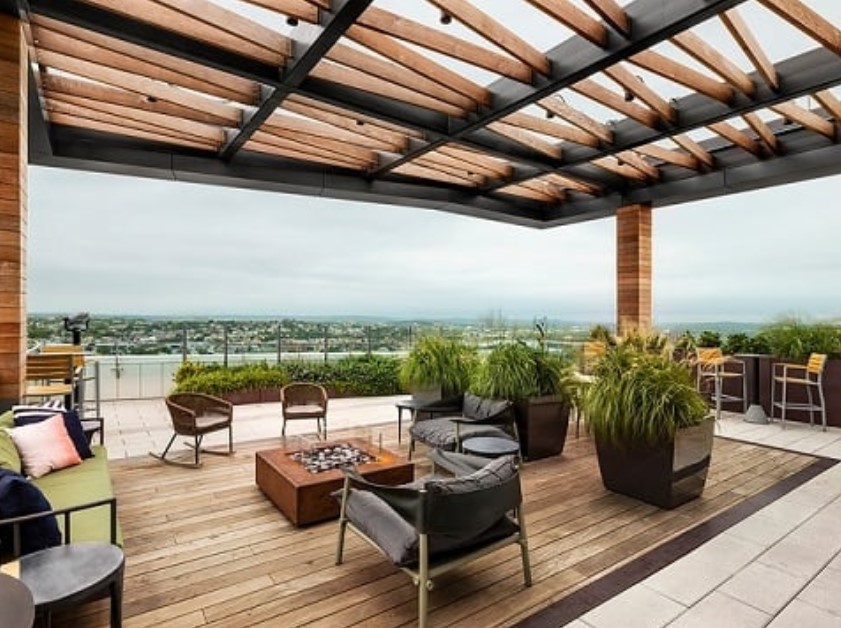
When planning to build a rooftop deck, it’s essential to understand the different types of systems available. From access points to damp proofing to waterproofing, there’s a system that’s right for you. The more information you have, the better you will decide.
Access Points
The roof deck may be the hub of your abode, but there are other places you can hang out. From alfresco swim spas to outdoor dining and living areas, a roof deck can be a fun and functional space to enjoy and entertain. Whether it’s a private or communal affair, a proper roofing system can ensure your guests’ enjoyment. But before you can get out onto the roof, ensure your deck and its accompanying gutters are in working order. Likewise, consider installing the appropriate insulation. Moreover, a rooftop deck systems should be regularly checked to ensure it is free of holes, leaks and rot. You can also install an automatic roof vent to help prevent heat loss.
As a general rule, the width of your deck should not exceed 48 inches. This is especially true if you are building a single-family home. Also, you should install a sleeve or sleeve system to keep water from getting under your roof.
Damp-Proofing Versus Waterproofing
Damp-proofing and waterproofing roof deck systems are critical for the safety and comfort of the occupants of a structure. However, they do not work in the same way.
There are two main types of waterproofing – sheet membrane and liquid membrane. The latter consists of a polymer-based material that is very adhesive.
Depending on the application and environmental conditions, the options may vary. For example, an air gap membrane or a drainage composite may be more appropriate for your project.
Unlike damp proofing, which stops soil moisture, waterproofing can also protect your foundation from water driven by hydrostatic pressure. Hydrostatic pressure is a condition in which gravity forces stagnant water against the bottom of a below-grade wall. This can be especially problematic in areas with high water tables.
Porcelain Planks
Roof decks are a unique way to enjoy your rooftop. These types of decks are exposed to different kinds of weather and can be exposed to snow, rain and extreme temperatures. Whether you’re looking for a maintenance-free deck or building a deck for your new home, porcelain planks for roof deck systems are a perfect choice.
Porcelain planks for roof deck systems are available in various colors, finishes and textures. They are lightweight and require zero maintenance. Unlike concrete, they are fireproof, stain resistant and fade-resistant. Also, they are aesthetically pleasing and can reproduce any natural wood or random grain structure.
In addition to its appearance, porcelain planks for roof deck systems also provide durability. They are solid and resistant to abrasion and scratching. This makes them an excellent choice for outdoor patios, plaza decks and swimming pools.










